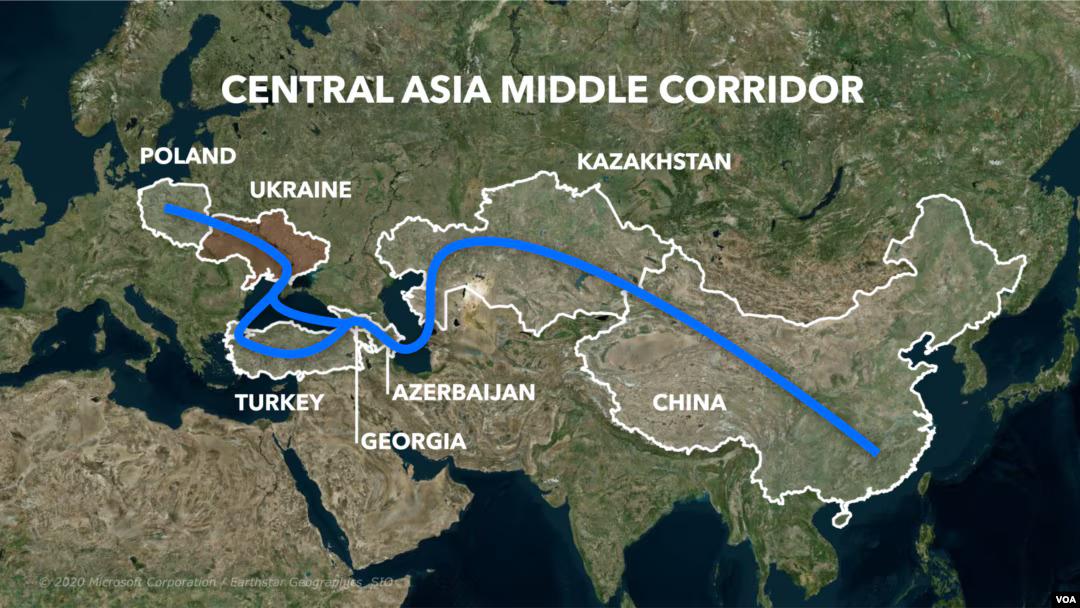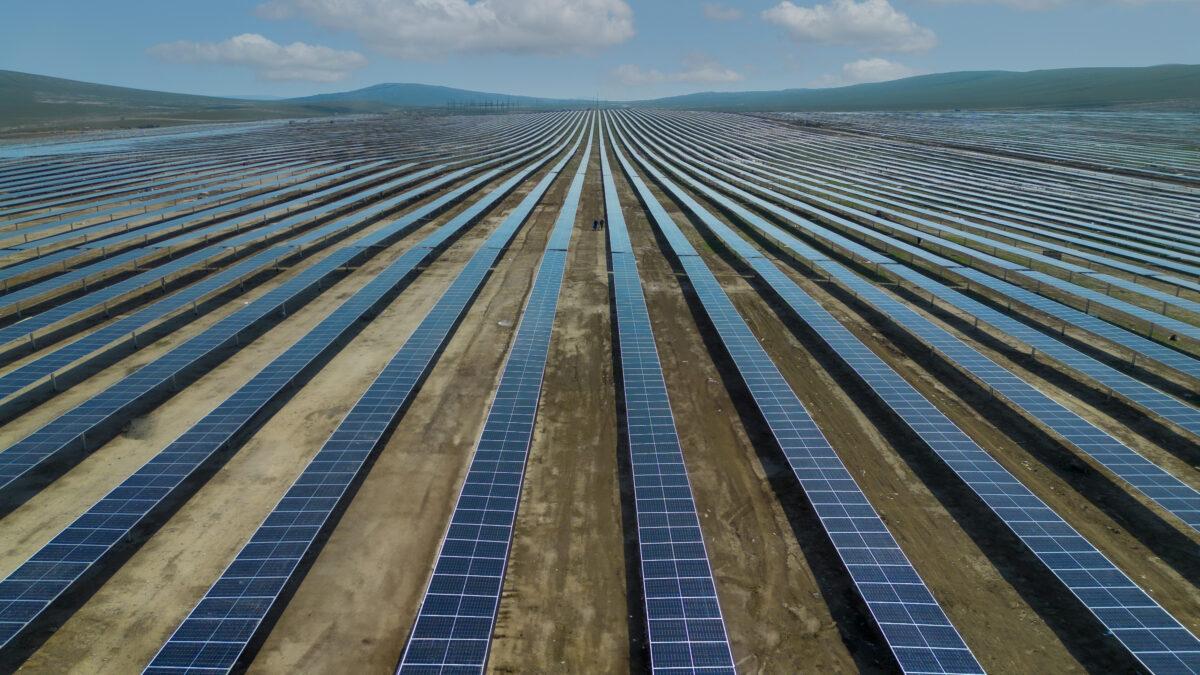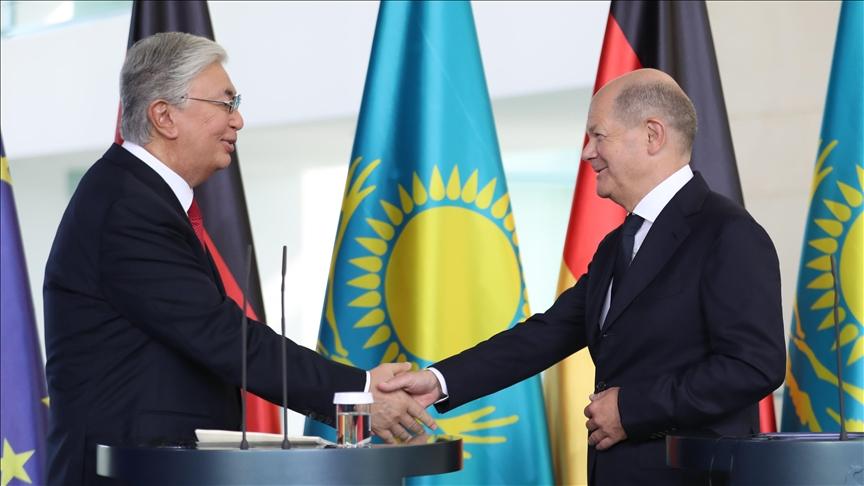The Caspian Sea: Central actor in diversifying European energy sources Region's growing strategic role
Over recent years, the Caspian Sea region has increasingly become a central player in Europe's strategic efforts to diversify its energy sources and lessen reliance on Russian natural gas. This shift has underscored the region's growing significance and vitality in European energy security. Major regional and international stakeholders have intensified their focus on the Caspian Sea region, exploring its abundant energy potential, expanding renewable energy initiatives, and navigating complex geopolitical dynamics that shape its pivotal role in European energy strategies.
Shifting sands post-Ukraine invasion
The invasion of Ukraine by Russia in 2022 precipitated a seismic shift in European energy policy. Prior to the conflict, Russia held a dominant position as a supplier of natural gas to Europe. However, Moscow's use of energy as a geopolitical tool strained relations with the EU, prompting European nations to seek alternative sources and transit routes. This backdrop has catapulted the Caspian Sea region into the spotlight as a viable option for Europe's energy security.
Central to the Caspian Sea region's allure is its vast energy resources, particularly in oil and natural gas. Kazakhstan, boasting approximately 30 billion barrels of oil reserves, and Azerbaijan, with around 7 billion barrels, are pivotal players. The strategic location of these reserves allows for diverse export routes, including pipelines that traverse through Azerbaijan to Türkiye and onwards to Europe. This geographical advantage positions the Caspian Sea as a critical hub for energy transit from Central Asia to Europe, circumventing traditional Russian-dominated routes.

Beyond traditional fossil fuels, the Caspian countries are increasingly focusing on renewable energy sources. Kazakhstan, Azerbaijan, and Uzbekistan have ambitious plans to expand their production and export of green energy. Uzbekistan, for instance, aims to generate an additional 20 gigawatts (GW) of energy through solar and wind power by 2030. These initiatives not only align with global efforts to combat climate change but also present new avenues for energy collaboration with the EU.
The success of Caspian energy projects hinges on robust regional cooperation and external investment. Countries like Azerbaijan have forged strategic partnerships with European entities to enhance energy infrastructure, such as the Azerbaijan-EU Green Corridor project. This initiative includes plans for a Black Sea underwater electricity cable, reflecting efforts to bolster energy connectivity between the Caspian region and Europe. Moreover, international financial institutions and private investors, including the World Bank and Masdar, have expressed keen interest and are active in funding green energy projects in Azerbaijan and other Caspian nations.

Russia's response & Iran’s ambitions
Despite the economic potential of Caspian energy, geopolitical tensions loom large. Russia, in particular, views the region's burgeoning energy partnerships with the EU and the United States as a threat to its regional influence. Moscow has actively opposed initiatives like the Trans-Caspian Natural Gas Pipeline, which seeks to link Turkmenistan's gas reserves with European markets via Azerbaijan. This opposition underscores Russia's determination to maintain control over European energy supply chains and limit the region's geopolitical autonomy.
Iran, another key player in the Caspian Sea region, has also pursued its own energy ambitions. Tehran's discussions with Moscow regarding the establishment of an energy hub and electronic gas trading platform highlight its strategic alignment with Russia's interests. Iran's vast natural gas reserves and transit capacities position it as a potential partner in Europe's energy diversification efforts, albeit amidst geopolitical scrutiny and international sanctions.
Looking ahead, the Caspian Sea region holds immense promise as a linchpin in Europe's energy security strategy. However, realizing this potential requires navigating complex geopolitical landscapes and balancing diverse interests. Caspian countries must foster deeper regional cooperation while attracting sustainable investment to develop energy infrastructure and capitalize on renewable energy opportunities.

In conclusion, the Caspian Sea region stands at a crossroads of opportunity and challenge for European energy security. The region's abundant energy resources, coupled with initiatives to expand renewable energy capacities, offer a promising alternative to Europe's reliance on Russian natural gas. Yet, geopolitical tensions with Russia and Iran pose significant obstacles that must be managed through strategic diplomacy and international cooperation. As Europe seeks to diversify its energy sources and enhance resilience against geopolitical disruptions, the Caspian Sea region's role as a critical energy hub will continue to evolve, shaping the future of global energy dynamics.
As Europe charts a course towards energy independence and security, the Caspian Sea region's role as an energy hub will continue to evolve. Strategic initiatives and diplomatic manoeuvres will shape how Caspian countries leverage their energy resources to meet European energy demands while balancing geopolitical pressures from Russia, Iran, and other stakeholders.








